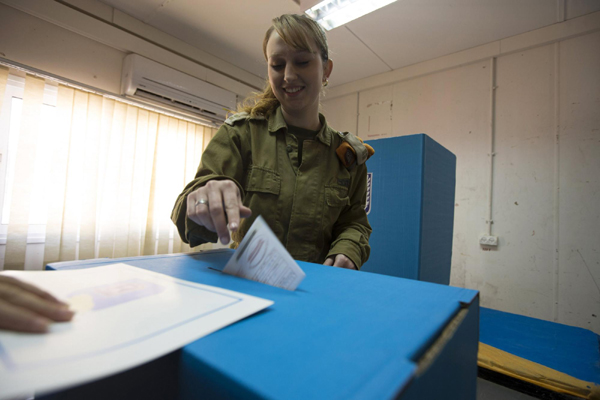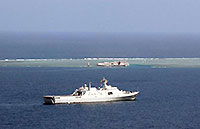Israelis go to polls in parliamentary elections
(Xinhua) Updated: 2013-01-22 18:33The same polls also predicted 17 seats for the Labor Party, 13 to 15 for the far-right Habayit Hayeudi (The Jewish Home) party, 12 for the centrist Yesh Atid (There is a Future) party and only seven for Tzipi Livni's center-left Hatnua (The Movement) party.
A majority of more than 65 seats is predicted for the right-wing bloc.
 |
|
An Israeli soldier casts her ballot at a polling station in a military base in southern Israel, Jan 21, 2013. [Photo/Agencies] |
More than 20,000 policemen, border guards and police volunteers would be deployed to polling stations, national police spokesperson Mickey Rosenfeld told Xinhua on Monday.
"The policemen are set to ensure that the public would be able to vote without anything compromising that right," he said.
Voter turnout in the 2009 elections stood at 65.2 percent and analysts are expecting it to be at least that high again this time.
However, less than 50 percent of Israeli Arabs, who constitute 20 percent of the country's population, are planning to vote, according to a recent survey published by the Ha'aretz daily. The Arab League has called on Israeli Arabs to vote to change the makeup of the Knesset.
The state has up to 14 days to count the votes and determine the results officially. During this period, parties will be locked in talks aimed at forging possible coalitions.
The politician with the highest chance of putting together a coalition, apparently Netanyahu, will be appointed prime minister by President Shimon Peres.







